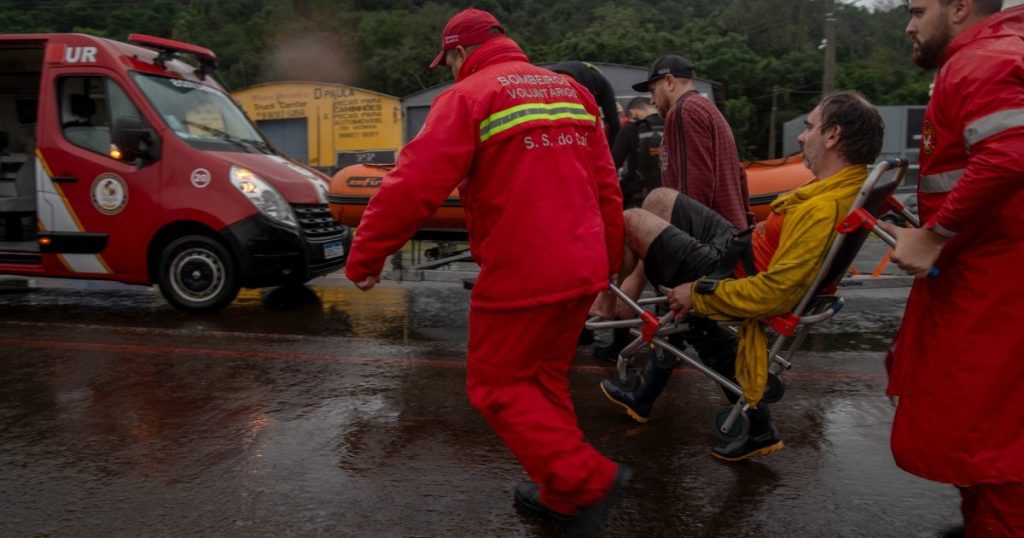The death toll in Brazil’s Rio Grande do Sul state has risen to 56, with tens of thousands displaced due to overpowering floods and mudslides caused by torrential rains. The country’s civil defence agency warned of rising water levels straining dams and threatening the metropolis of Porto Alegre. The flooding, triggered by storms starting on Monday, is expected to worsen as rescuers search for missing people among the ruins of washed-out homes, bridges, and roads. Governor Eduardo Leite has warned that the situation will deteriorate, with the flooding affecting at least 265 municipalities in Rio Grande do Sul, leaving 350,000 with property damage and displacing over 24,000.
The devastating floods, dubbed Brazil’s worst in 80 years, have left residents in several cities and towns completely isolated with no access to electricity or telephones. Livestock has been abandoned as the water continues to rise, posing a threat of drowning. Civil defence officials have warned that four of the state’s dams are at risk of collapsing, creating a potential new emergency situation. The federal government has deployed resources including aircraft, boats, and over 600 soldiers to assist with relief efforts, with local volunteers also aiding in search and rescue operations.
Climatologist Francisco Eliseu Aquino attributed the catastrophic storms to a “disastrous cocktail” of global warming and the El Nino weather phenomenon. A series of extreme weather events in Brazil, including a deadly cyclone in September, have been exacerbated by climate change. Aquino explained that the region’s unique geography makes it susceptible to the collision of tropical and polar air masses, a collision intensified by climate change. When these events coincide with El Nino, the atmosphere becomes more unstable, leading to extreme weather conditions.
In the midst of the crisis, many residents have lost everything, with one survivor, Claudio Almiro expressing gratitude for his life despite losing his home and possessions. Raul Metzel, from Capela de Santana, shared concerns about the welfare of animals at risk of drowning as the rain continues unabated. The perseverance of local volunteers and the deployment of federal resources provide hope for the devastated communities, as efforts to clear roads, distribute essential supplies, and set up shelters progress. The impact of the catastrophic flooding in Rio Grande do Sul serves as a stark reminder of the urgent need for climate action to mitigate the effects of extreme weather events on vulnerable populations.


